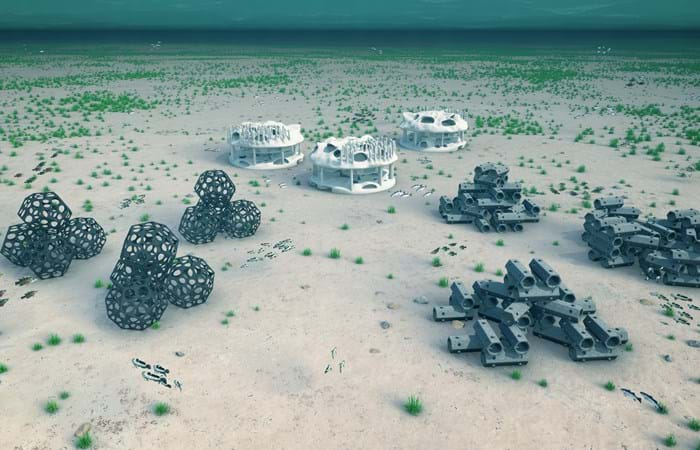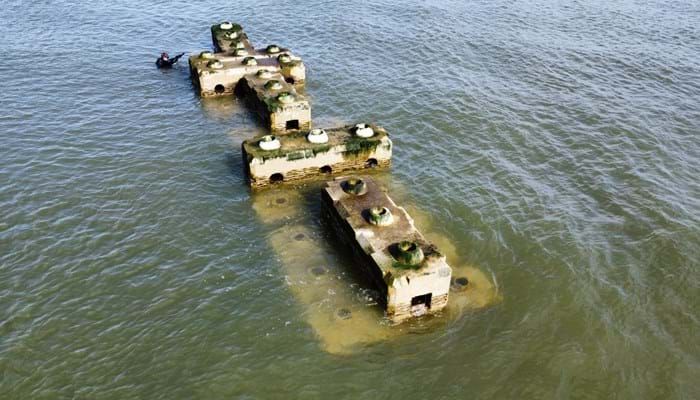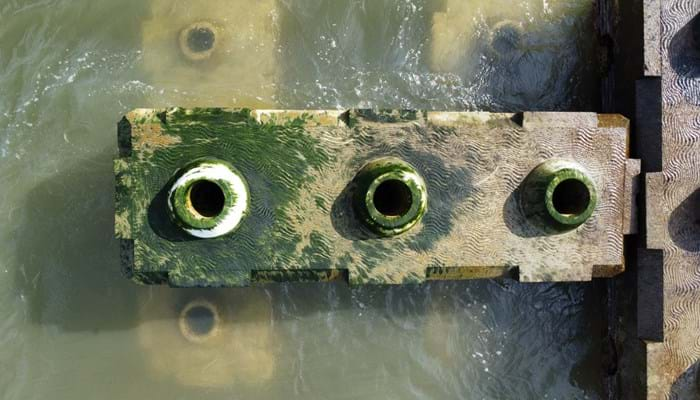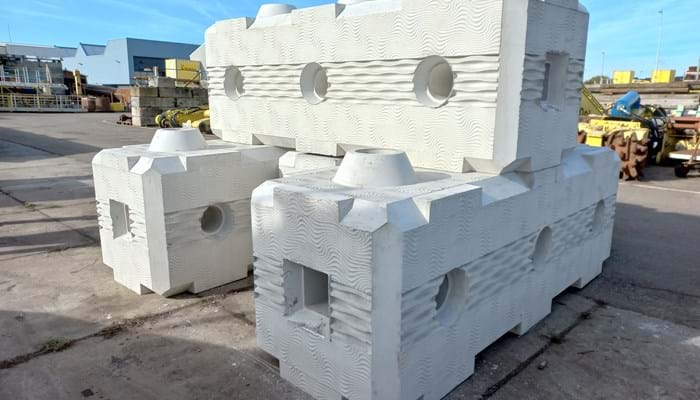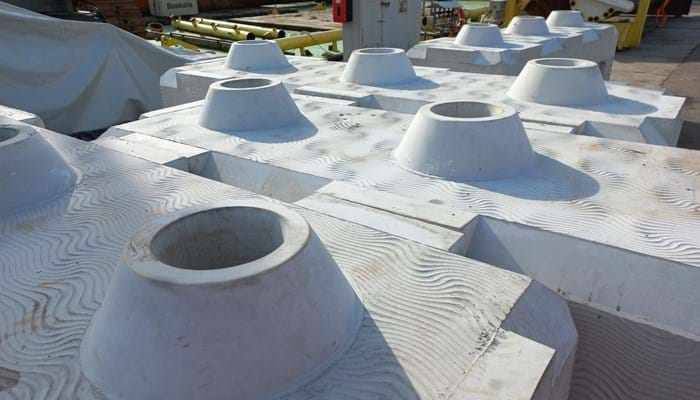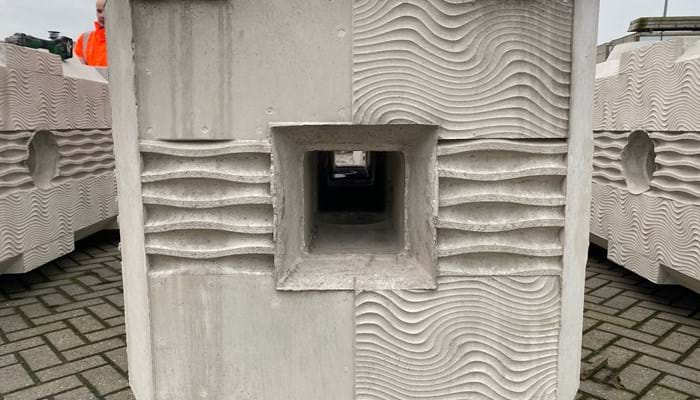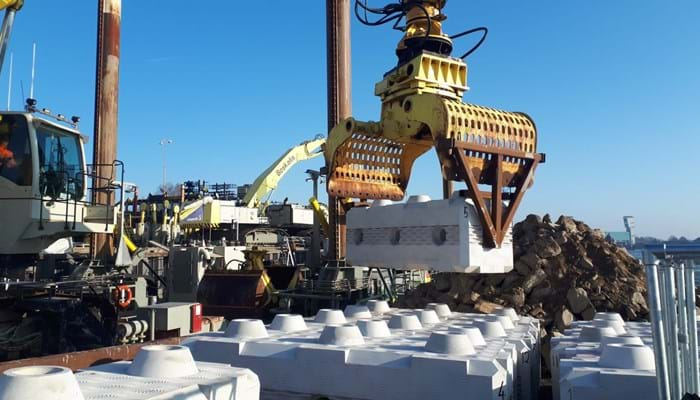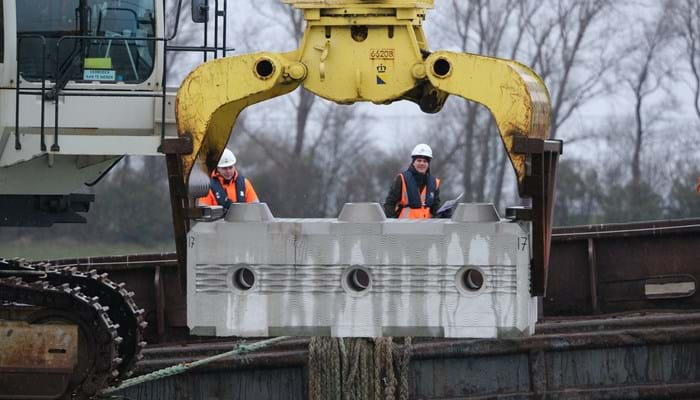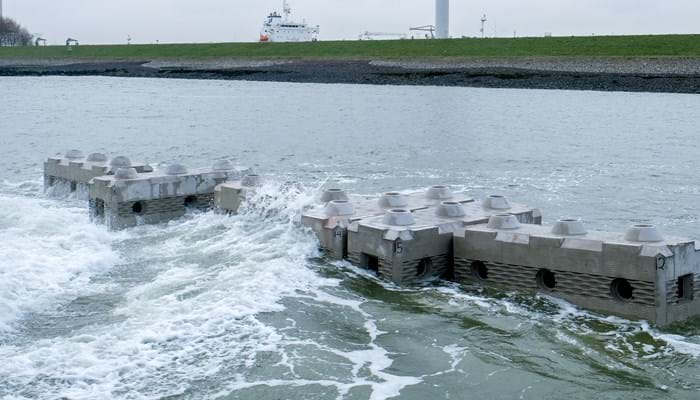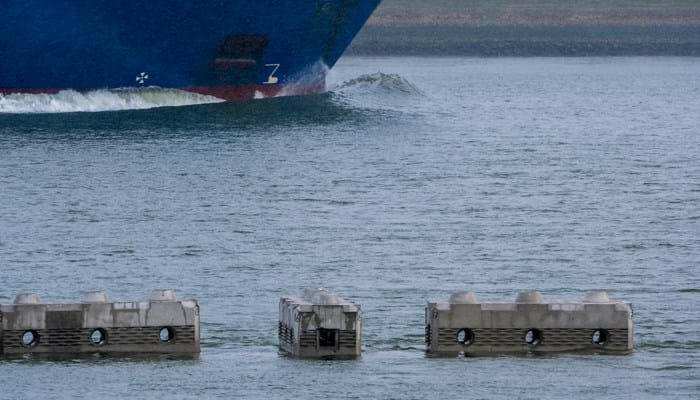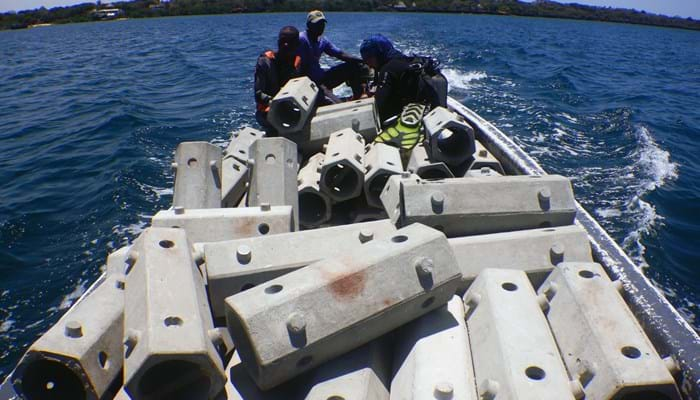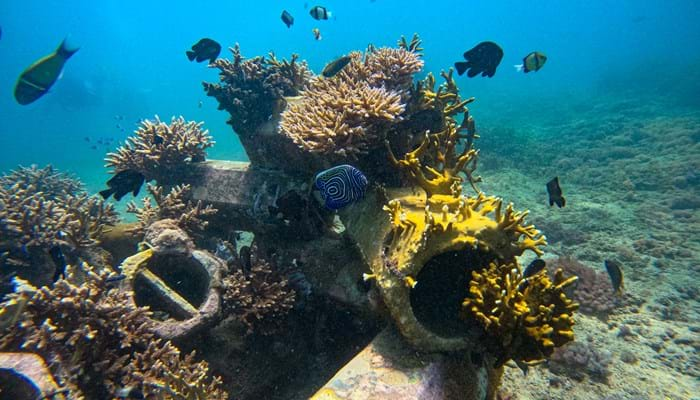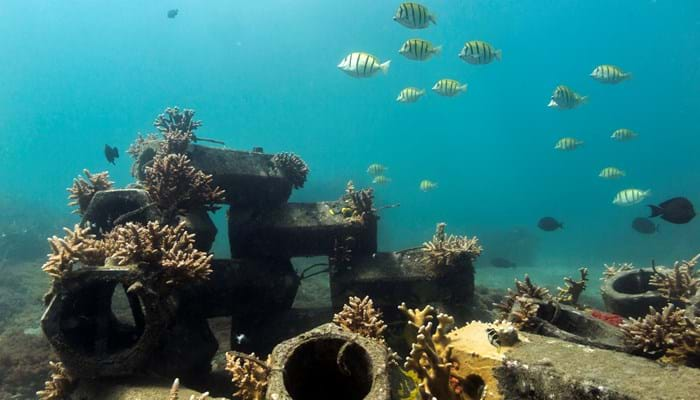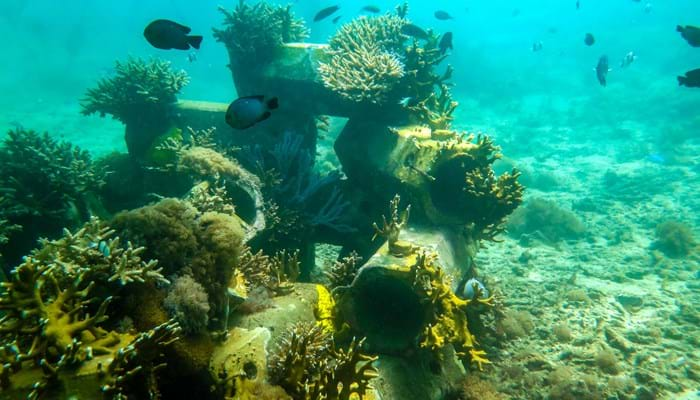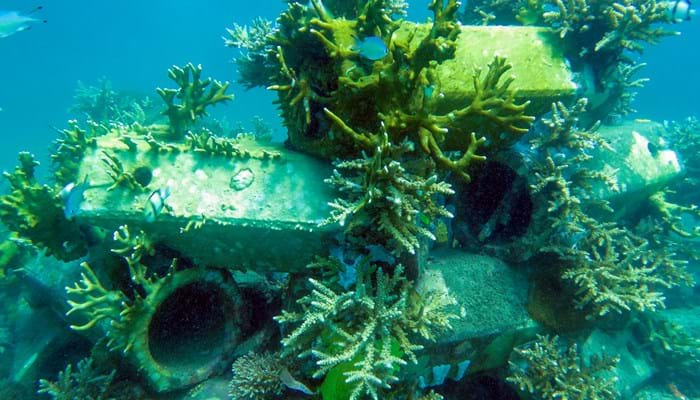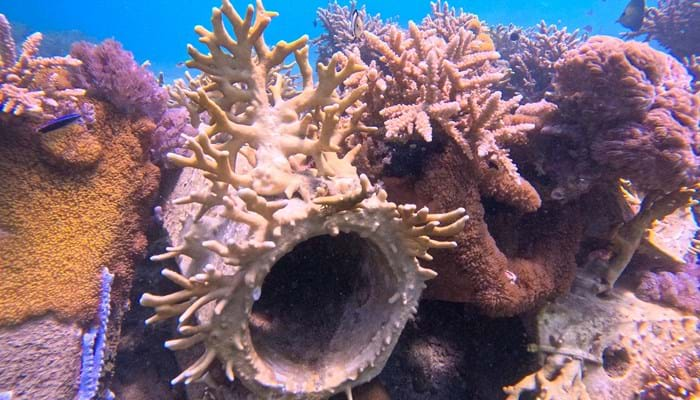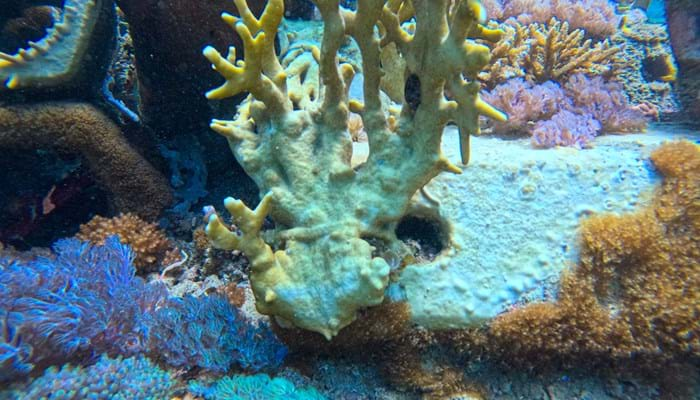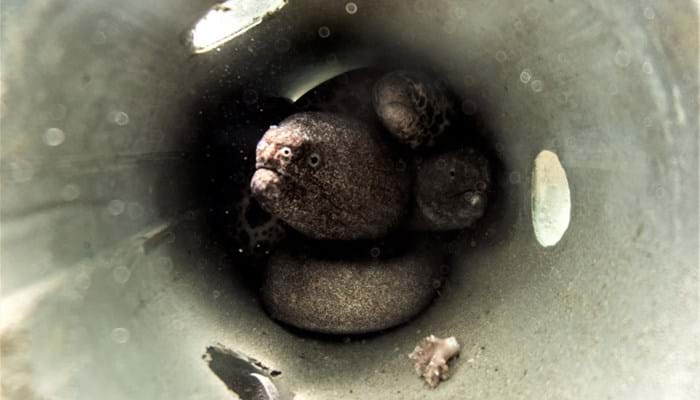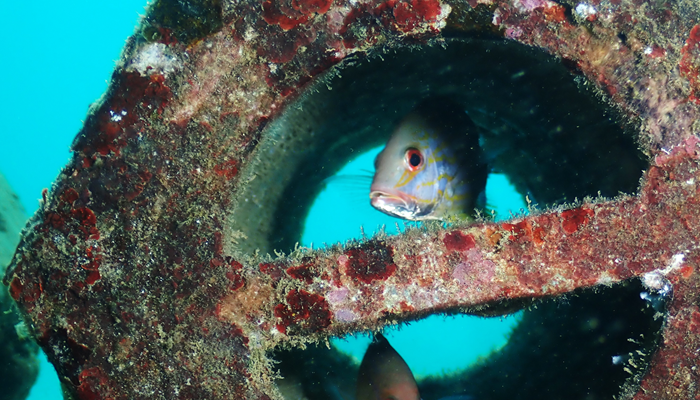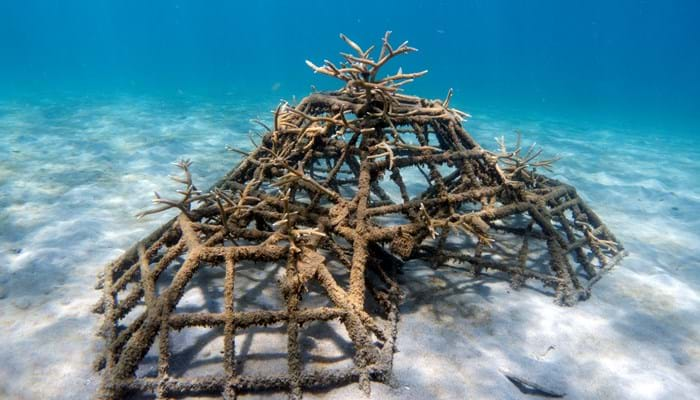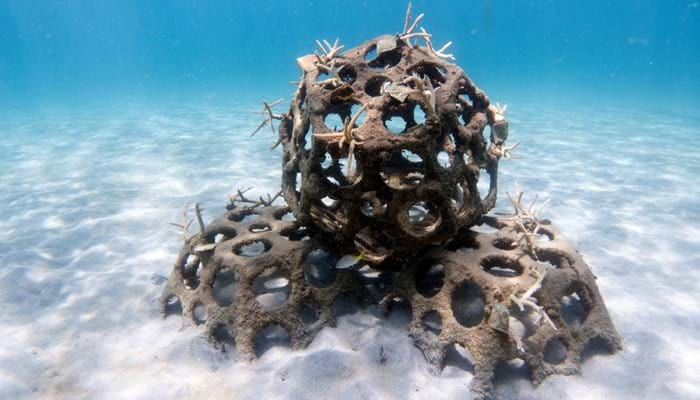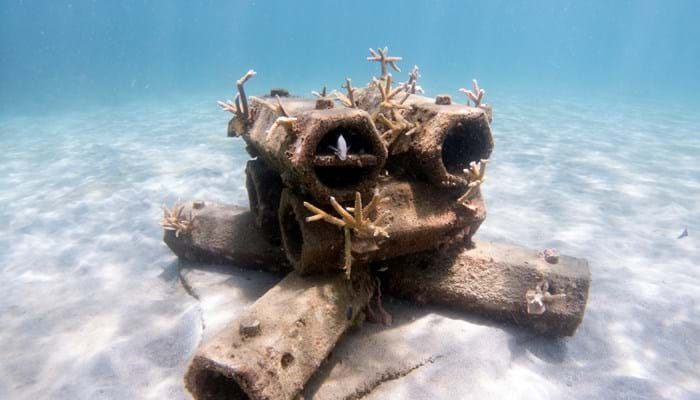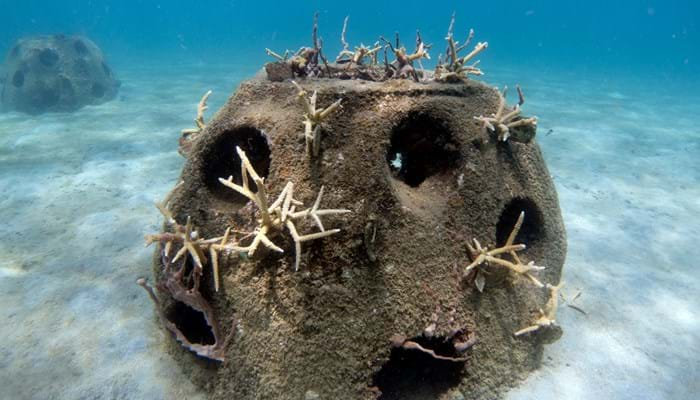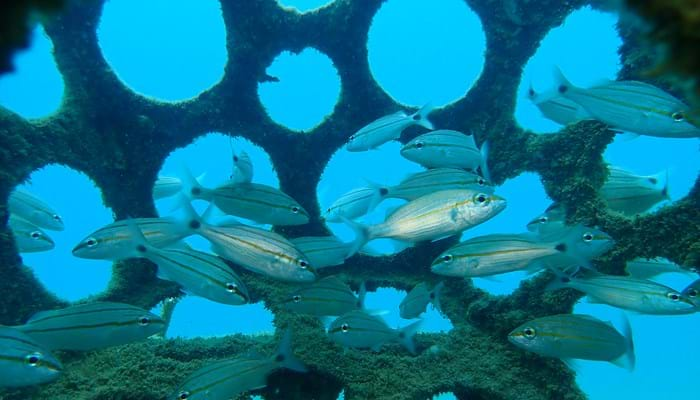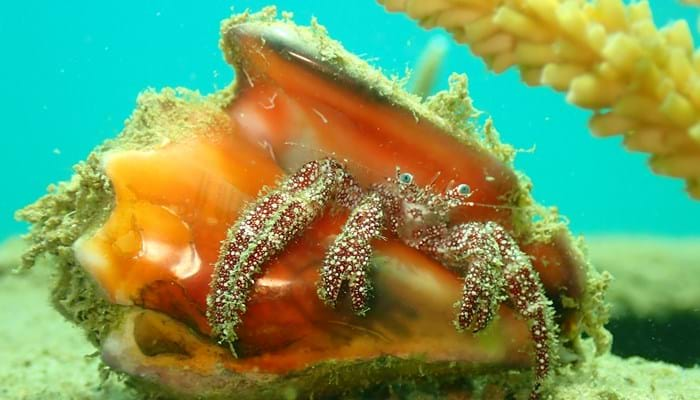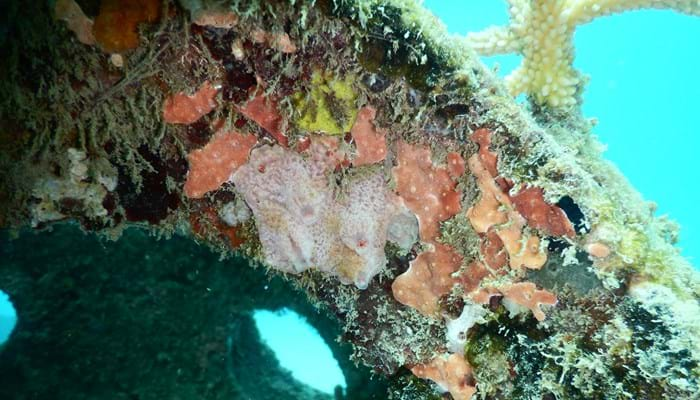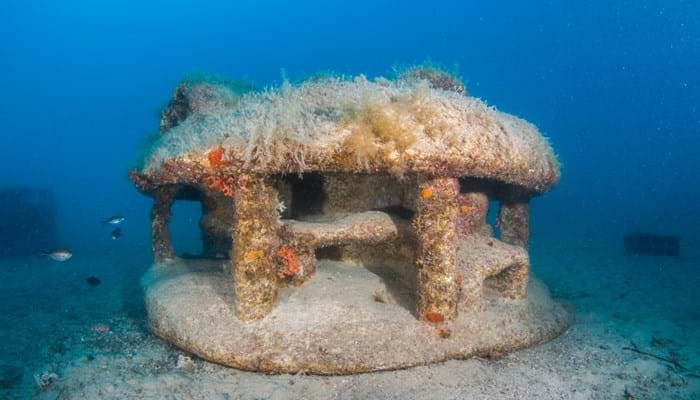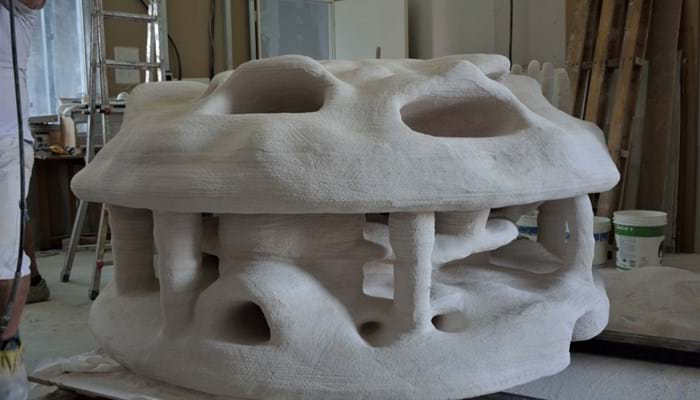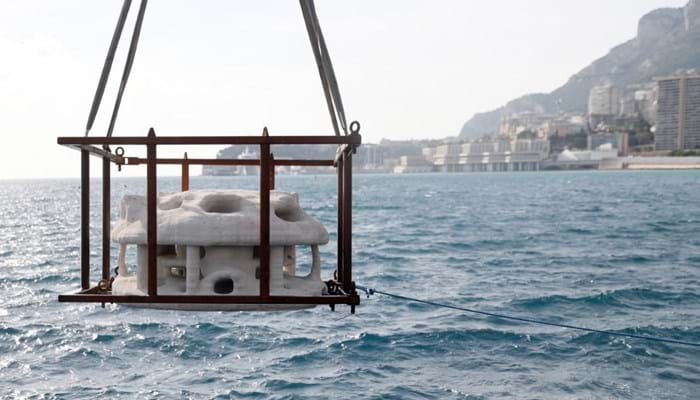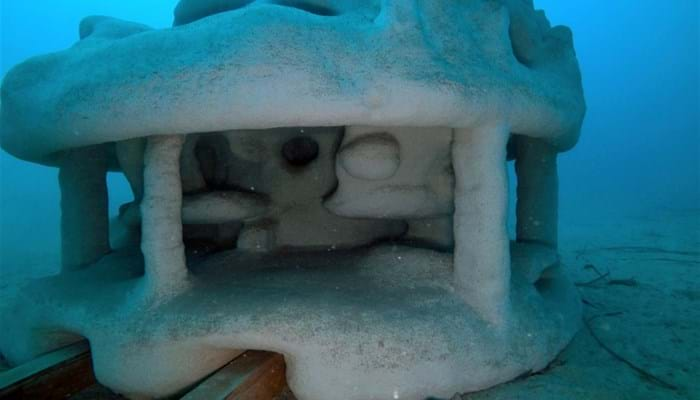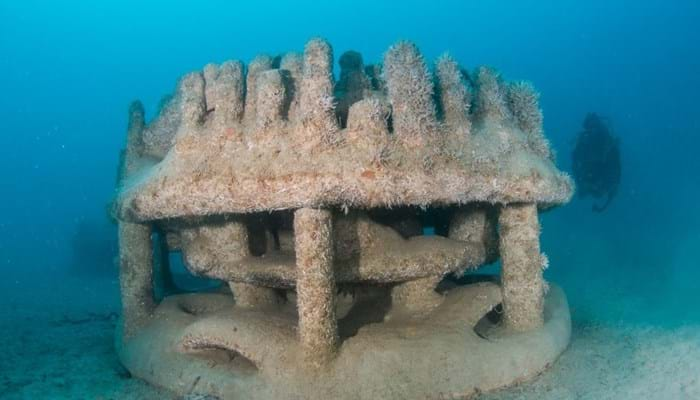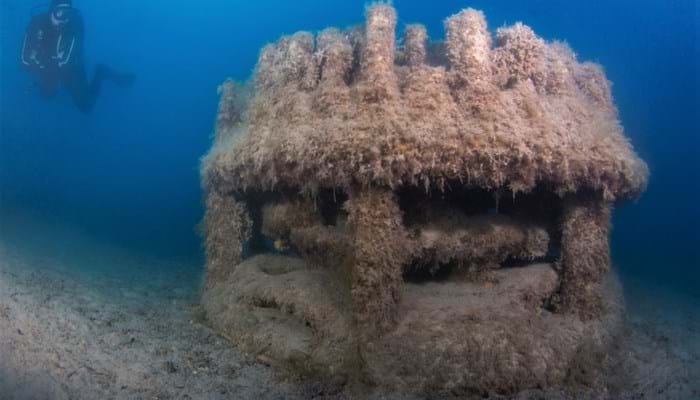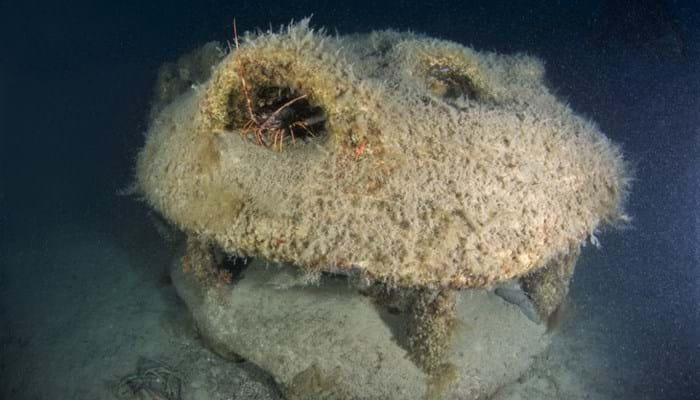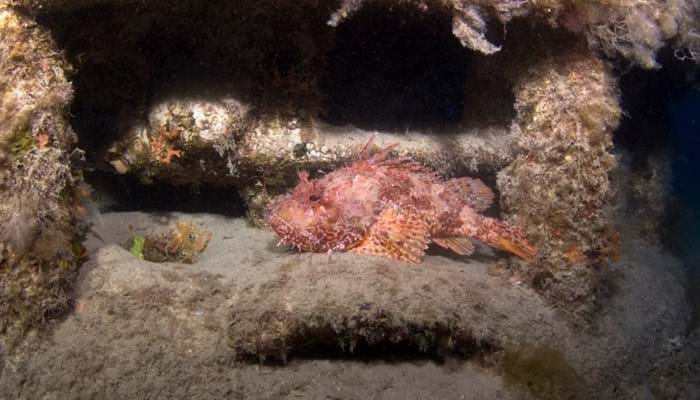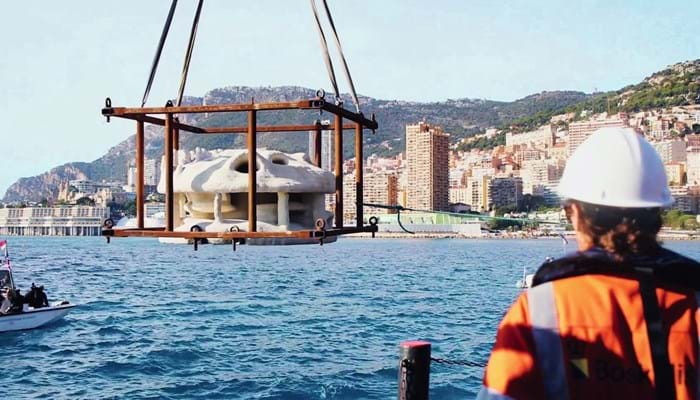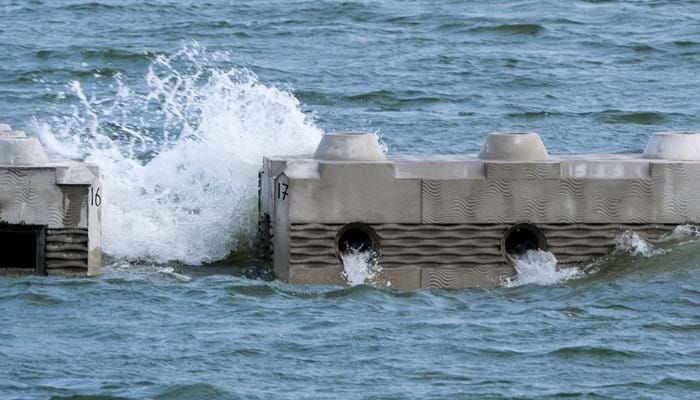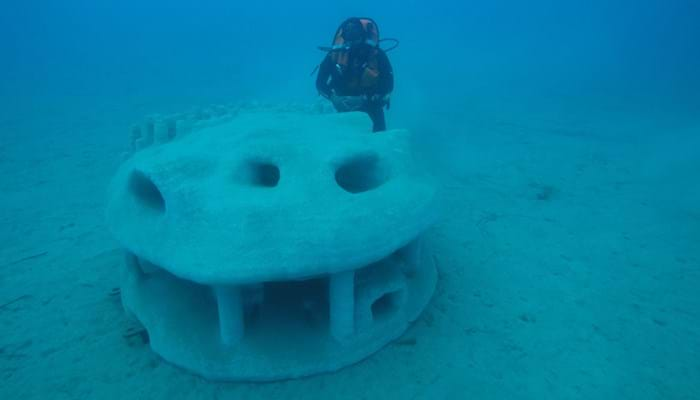In the field of coastal defense and riverbank protection, we are continuously looking for creative ways to establish the right conditions to enhance nature. Our multidisciplinary knowledge contributes to finding solutions that are climate-adaptative for both the environment and our business. Through the expertise and experience gained by the Artificial Reefs Program (ARP), Boskalis forms an industry leader in the development and application of large-scale artificial reefs.
Goal of the ARP
The goal of the Boskalis Artificial Reefs Program (ARP) is to provide solutions for environmental enrichment in our offering to clients by using artificial reef technology as an enabler for marine infrastructure or coastal protection works. Furthermore, artificial reefs can support the development and conservation of marine ecosystem cornerstone species such as corals, oysters and herbivorous fish.
The goal of the ARP relates directly to the objectives in the corporate sustainability strategy, specifically the focus areas biodiversity and climate change adaptation. Some examples of how the ARP is making a difference is through the application of artificial reefs in living breakwaters to form a synergy between coastal protection and ecosystems. Knowledge development on (artificial) reefs leads to scientifically and ecologically founded solutions for projects executed in environmentally sensitive areas through mitigating and enhancing designs.
Our unique approach
Whether it concerns coastal protection, ecological restoration and/or fisheries management, Boskalis aims to provide fit-for-purpose solutions with a clear business case. To achieve this, we engage in strong strategic partnerships with parties who are at the forefront of (modular) engineering. Boskalis hereby enables and provides opportunities for pilots, tenders and awarded projects. We also provide key insights/technical requirements for artificial reef designs in challenging environments. In return, our strategic partners provide us with a diverse range of artificial reef options to serve our clients and markets.
Our potential roles
Boskalis can take up various roles when it comes to artificial reefs implementation. In our focus role, we provide input to pilots, tenders and projects. We support permitting processes, provide integrated designs (ecology, hydraulics and logistics), and engage in close collaborations with relevant partners and stakeholders. Where applicable, we make detailed work method statements for marine installations and aid in further knowledge development and community engagement. In our strategic role, we support project owners in a pre-tender stage to link challenges with solutions, catalyze opportunities and help prospective projects achieve higher value outcomes.
Hengistbury Head Long Groyne (2024)
An extensive environmental enhancement scheme was included in the scope of replacing the old groyne at Hengistbury Head in the UK together with the Bourne, Christchurch and Poole (BCP) Council. With the aim of increasing biodiversity, as per local legislation, a total of 98 reef and rock units were placed along the length of the groyne. In total, the 25 MOSES units, 13 ARC Marine Cubes, 8 tidal pools and 52 rock pools were transported and installed by Boskalis. This commercial project was facilitated due to successful pilot projects, which demonstrated improvements in nature enhancement and biodiversity. Additionally, stability of the reefs had been validated through physical scale model testing.
The 7 tonnes MOSES reefs and tidal pools from Reefsystems and Reef cubes from ARC marine were placed in the subtidal region of the groyne using cranes and barges. The installation required detailed project phasing and planning in order for the environmental scheme to fit into the operational procedures and to allow for the installation in a harsh and dynamic coastal environment. In the intertidal region and shoreline, units were placed with a crane during low tide. Additionally, costum-made rock pools were grinded out of re-used rocks from the old groyne and placed in between the armour of the new groyne to kickstart life within the structure itself.
An extensive monitoring regime will compare the ecological benefits of the different environmental enhancement units compared to traditional rock armour. Furthermore, a comparison of various monitoring techniques, including manual surveying and eDNA through our partner Nature Metrics, will be included to assess which method is most suitable for environmental monitoring of the reef units in a dynamic and tidal environment.
CREST (2024 - ongoing)
In 2024, a major test for our Artificial Reefs Program took place at Deltares' Delta flume in Delft, the Netherlands. In the flume 150 3D-printed scale models (1:3) were placed, which were created by our partner Coastruction. In addition, the modular reefs from ReefSystems were tested, also at a 1:3 scale. These modular reefs are the type Boskalis has installed in Kenya, for example. This test was needed to see what effect this artificial reef construction has on the waves that are released in the flume.
This research initiative by TU Delft is called CREST and aims to use coral reef restoration to reduce island flooding. CREST is a part of the ARISE project by the University of Plymouth. The main question is how the waves develop after they pass the reef. That information is crucial for future coastal protection designs. And so Boskalis combines both artificial reef development and coastal defense.
SPREE (2024 - ongoing)
The SPREE Joint Industry Project (JIP), led by Deltares and involving partners such as BAM, Coastruction, Holcim, INSPIRE Environmental, Reefy, RWE, Geowall, Wageningen Marine Research, Vattenfall, and TenneT, investigates the potential of Engineered Reef Unit Solutions (ERUS) as integrated offshore scour protection structures for offshore wind farms (OWFs). These innovative units aim to balance ecological enhancement with robust protection for foundations, cable crossings, and cable protection systems.
As an installation contractor, Boskalis plays a critical role in assessing the feasibility of ERUS deployment, defining boundary conditions, and evaluating case studies. This research aligns with nature-inclusive design principles and addresses challenges such as rock scarcity while exploring scalable ecological benefits. SPREE evaluates ERUS across four work packages, focusing on installation, stability, lifecycle, and ecosystem enhancement, to advance sustainable solutions for OWFs.
An artificial helping hand for the Buccoo Reef
Due to increasing pollution, deteriorating water quality and coral bleaching caused by increased water temperatures, marine scientists declared the Buccoo Reef in Trinidad & Tobago a high-risk area in 1970. Between 1994 and 2008, the coral cover in the 7-square-kilometer reef, one of the country’s three largest and most popular reefs, declined by 28 percent. So, an artificial helping hand to help recover the reef is more than welcome.
Together with ReefSystems and the Buccoo Reef Trust, Boskalis facilitated the Buccoo Reef's first restoration project by installing three artificial reefs. The three carefully designed structures consist of 40 large MOSES blocks each. The first results look extremely promising, as from day one, the artificial reefs attracted marine life.
Rotterdam Reef (2023 - 2025)
The Rotterdam Reef Project is a project of Rijkswaterstaat, Rotterdam Municipality, Reefy and Boskalis. Installed in the New Waterway, the project aims to assess whether an artificial – and sustainable – reef can protect the banks from the impact of waves generated by passing shipping. It focussed on the entire chain: from the production of the blocks to the monitoring of the reef. A special gripper was designed by Boskalis for moving and installing the blocks. With installation being a success, Reefy will monitor the ecological development of the Rotterdam Reef for the coming years. The Rotterdam Reef is the largest reef that Boskalis has installed to date.
REEFolution Kenya (2021 - ongoing)
The biodiverse coastal reefs of Kenya support artisanal fishing and tourism. Rapid population expansion and limited awareness have caused severe reef impacts due to practices such as blast fishing. To counterbalance this increasing environmental pressure, the REEFolution Kenya initiative was established to restore and stimulate a more sustainable use of coral reefs. Past damage is rehabilitated and reef resilience increased through active coral reef restoration.
In close collaboration with Wageningen UR and ReefSystems, Boskalis supported the purchase, transport and installation of 90 MOSES units at Shimoni, Kenya, to be used for coral restoration and habitat monitoring purposes. The ecological performance of these modular concrete units has been so impressive that ReefSystems has received subsequent grants and has expanded the site with an additional 1400 MOSES units placed.
Panama project (2020 - 2022)
The Panama Pilot aimed at comparing, under identical conditions, four artificial reef types which are based on different design philosophies: active (MAT) versus passive (non-MAT) systems, as well as modular versus non-modular designs. The designs included the in-house designed Endless Reef units, Coralive.org minidomes, ReefSystems MOSES units and ReefBall units. The pilot was the product of a natural collaboration between Boskalis Panama, Reef2Reef, Commercial Diving Panama and the Maritime University of Panama to seek effective coral habitat restoration techniques in the face of coral reef decline in Panama.
Monaco Pilot (2017 - 2022)
Like many European coastal resorts, Monaco’s marine life is struggling with the impact of climate change, coastal development, seawater pollution and over-fishing, which has led to a decline in the numbers of fish and shellfish. In close collaboration with AMPN, DShape and Boskalis engaged in a pioneering, 3D-printed reefs pilot project. After careful design sessions, the Monaco Pilot saw the successful installation of six printed reef modules in Monaco, marking the start of the monitoring phase for biodiversity and ecological development.
What drives Boskalis to develop innovations
focusing on sustainability and biodiversity.
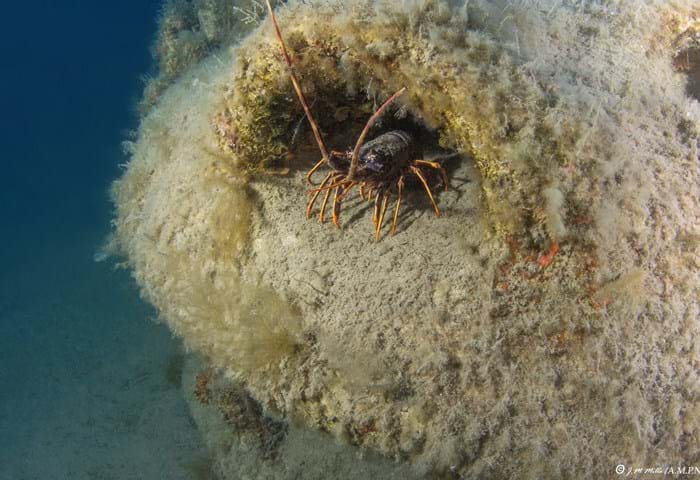
Let's talk
Contact our team
Function: Program Lead Artificial Reefs and Coastal Engineer

Contact our team
Function: Environmental Engineer

Contact our team
Function: Environmental Engineer

